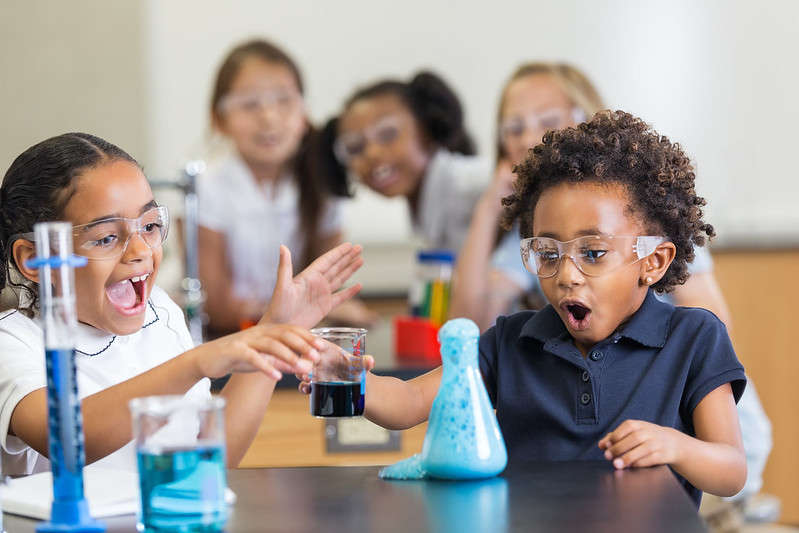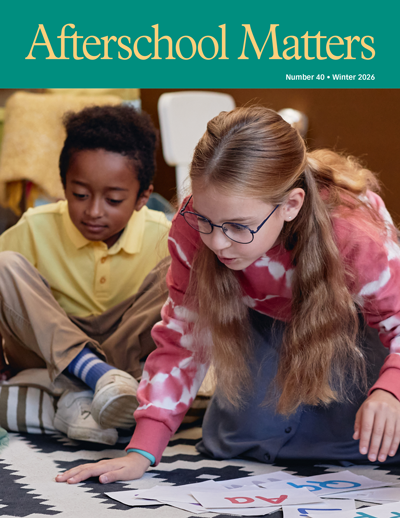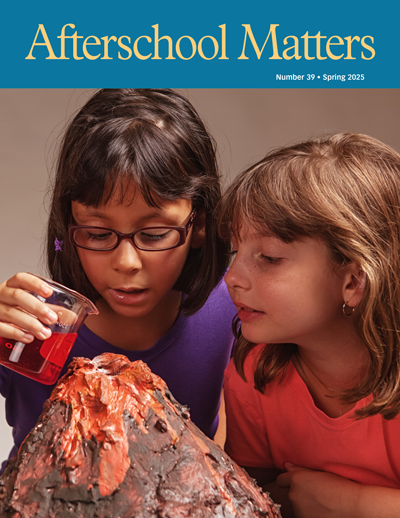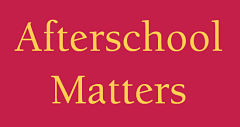How Out-of-School Time Can Help Students See Themselves in STEM
October 24, 2019
 In NIOST's home state of Massachusetts, it's the second annual STEM Week, with the theme of "See Yourself in STEM." Here are some ways out-of-school time (OST) programs around the country are helping students do just that, as evidenced by these articles in our Afterschool Matters journal.
In NIOST's home state of Massachusetts, it's the second annual STEM Week, with the theme of "See Yourself in STEM." Here are some ways out-of-school time (OST) programs around the country are helping students do just that, as evidenced by these articles in our Afterschool Matters journal.
- In "I Could See Myself as a Scientist," Kelly Riedinger and Amy Taylor look at how OST programs may influence girls identities in science. They studied the Coastal Ecology program at the Chincoteague Bay Field Station on the Eastern Shore of Virginia, and found that "Throughout the science camp, the girls were working in the field as scientists, engaging in authentic science practices and using the actual tools of scientists. These opportunities helped the girls to see themselves as scientists and fostered positive science identities." These experiences addressed a number of factors that may limit girls’ identification with science, such as "perception that science is masculine, science instruction that does not align with girls’ interests, the persistence of historical stereotypes of who can do science, girls’ lack of access to support in science, and a lack of role models and mentors."
- In "Being and Becoming Scientists: Design-Based STEM Programming for Girls," Jasmine M. Nation, Danielle Harlow, Diana J. Arya, and Maya Longtin, profile the STEMinist Program in California, a collaboration between university researchers and an afterschool program for girls in grades 4 to 6. The program was designed to help the students "understand science and engineering both as sets of practices and as knowledge-building disciplines" and "to enable girls to identify with STEM professionals and to share their experiences publicly in creative ways." Among the lessons learned was a need for participants to read stories about young inventors, not just famous adult scientists; to connect these stories to their own family histories and personal experiences; and to create their own inventions.
- In "Crumpled Molecules and Edible Plastic: Science Learning Activation in Out-of-School Time," Rena Dorph, Christian D. Schunn, and Kevin Crowley explore the concept of "science learning activation," the idea that learning experiences in science "should not only be positive in the moment, but also position youth for future success." They observe that "OST programs are an important venue for developing science learning activation; they offer flexibility and opportunities youth may not encounter elsewhere" and suggest that "researchers and program providers may want to consider science learning activation as a fitting program outcome." To this end, they share a framework and set of assessments that can help OST researchers, evaluators, and program developers develop and assess their work.



